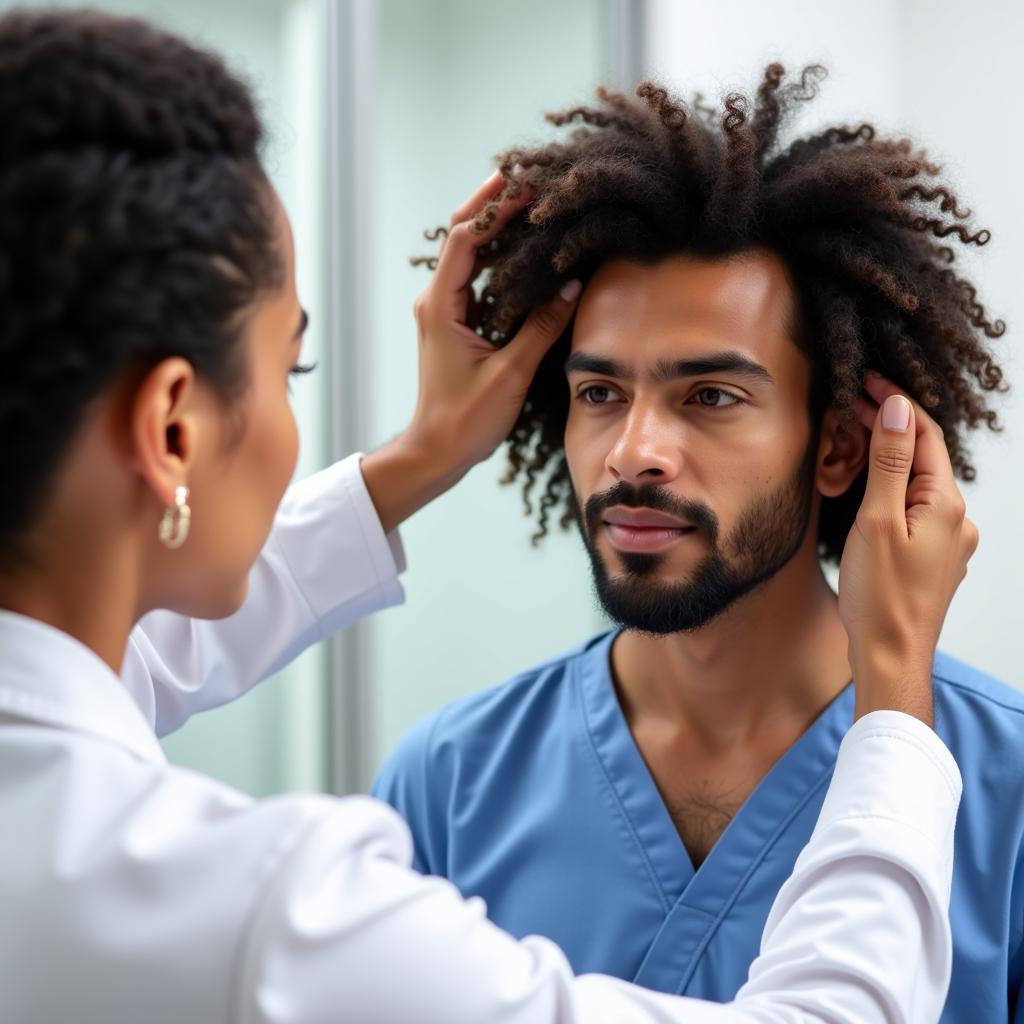African Black Soap: Real vs. Fake – How to Tell the Difference
African black soap, a skincare staple for centuries across the continent, is experiencing a surge in global popularity. With this increased demand, unfortunately, comes the rise of counterfeit products. Knowing how to spot the difference between real and fake African black soap can save your skin from potential harm and ensure you reap the natural benefits this incredible soap offers.
What is Real African Black Soap?
Authentic African black soap is raw, plant-based soap handmade in West Africa, primarily in Ghana, Togo, Benin, and Nigeria. Each region may have slight variations in ingredients and production methods, but the core elements remain consistent.
Key Ingredients:
- Plantain Skins: Rich in vitamins A and E, plantain skins are known for their skin-soothing and healing properties.
- Cocoa Pods: Packed with antioxidants, cocoa pods help protect the skin from environmental damage and promote a youthful appearance.
- Palm Oil: A natural moisturizer, palm oil keeps the skin hydrated and supple.
- Shea Butter: Known for its intense moisturizing and healing benefits, shea butter leaves the skin soft and smooth.
- Water and Wood Ash: Water is used in the saponification process, and wood ash from specific trees acts as a natural lye, creating the soap’s characteristic dark color.
7 Signs of Fake African Black Soap
Counterfeit black soap often contains harsh chemicals and artificial ingredients that can irritate the skin. Here’s how to identify and avoid them:
- Uniform Shape and Color: Real African black soap is rustic and handmade, resulting in irregular shapes and color variations. If the soap is perfectly shaped or uniformly black, it’s likely fake.
- Artificial Fragrance: Authentic black soap has a naturally earthy, smoky aroma. Strong, perfumed scents indicate added fragrances, a red flag for fake products.
- Lathering Quickly and Excessively: Due to the absence of synthetic foaming agents, real black soap produces a mild lather. If the soap lathers up quickly and abundantly, it likely contains artificial ingredients.
- Bright or Unnatural Colors: Authentic black soap ranges in color from deep brown to black. Bright colors like yellow, green, or purple often signal artificial dyes and additives.
- Smooth and Polished Texture: Real African black soap has a rough, uneven texture due to the presence of unrefined ingredients. A smooth, polished surface is a sign of mass production and potential additives.
- Ingredient List with Chemicals: Authentic black soap typically has a short, recognizable ingredient list. If you see a long list of unpronounceable chemicals, steer clear.
- Unrealistic Pricing: Producing real African black soap is a labor-intensive process. If the price seems too good to be true, it probably is.
The Benefits of Using Real African Black Soap
For centuries, people across Africa have relied on the power of black soap to cleanse, soothe, and improve their skin. Some of the key benefits include:
- Gentle Cleansing: Its natural ingredients effectively cleanse the skin without stripping away its natural oils, making it suitable for even the most sensitive skin types.
- Acne Treatment: Black soap’s antibacterial and anti-inflammatory properties help combat acne-causing bacteria and reduce inflammation, promoting clearer skin.
- Eczema Relief: The soap’s moisturizing and soothing qualities can provide relief from eczema symptoms like itching, dryness, and irritation.
- Hyperpigmentation Reduction: Ingredients like plantain skins can help fade hyperpigmentation and even out skin tone over time.
- Anti-Aging Properties: Rich in antioxidants, African black soap combats free radicals, protecting the skin from premature aging and promoting a youthful complexion.
Where to Buy Authentic African Black Soap
Sourcing your African black soap from reputable sellers is crucial. Look for:
- Transparent Sourcing: Choose sellers who are transparent about their sourcing practices and can trace the soap back to its origin in West Africa.
- Ethical Production: Support brands committed to fair trade practices and ethical sourcing, ensuring fair wages and sustainable production methods.
- Positive Reviews: Read reviews from other customers to gauge the authenticity and quality of the product.
By understanding the key differences between real and fake African black soap, you can make informed choices for your skincare routine. Investing in authentic black soap ensures you experience the true power and benefits of this ancient beauty secret.

